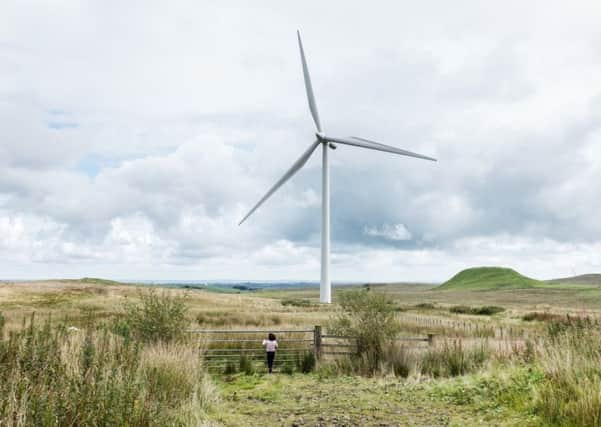Leader comment: Scotland's beauty must be preserved amid green energy boom


As Scottish Conservative energy spokesman Alexander Burnett pointed out yesterday, some people view windfarms as an “unsightly” blot on the landscape. And they, he added, are “simply unwilling to have more turbines foisted upon them”.
So they will doubtless be dismayed by the news that Scottish Power has sold off its gas and hydro plants to concentrate on wind and renewables, with plans to more than double the capacity of windfarms currently generating electricity or under construction.
Advertisement
Hide AdAdvertisement
Hide AdHowever, for others, it is a sign of things to come, a move that heralds a new age as the world moves towards a zero-carbon future that will enable us to avoid dangerous climate change and bring a literal breath of fresh air to blow away potentially deadly pollution.
These two groups may seem implacably opposed to one another, but in reality they both make valid points. Scotland is famous all over the world for the romantic beauty of its landscape, a fact that helps encourage millions of tourists to come here. Allowing the industrialisation of the Highlands would be a scandal. But, fortunately, that does not need to happen. Scotland has vast amounts of wind energy and it is possible to site onshore windfarms in places where they do not desecrate the countryside.
And the most consistent supply of wind is found out to sea, particularly on the west coast, as anyone who has visited the Outer Hebrides can attest. The UK Government has been criticised for failing to encourage onshore windfarms – not least because they are a source of increasingly cheap electricity.
However, part of Westminster’s strategy has been to encourage offshore wind in the hope that the UK – and particularly Scotland – can create a globally significant industry. As UK Energy Minister Claire Perry pointed out in The Scotsman yesterday, the transition to renewable energy is a challenge but also “one of the greatest industrial opportunities of our time”. So Scotland can help the world fight climate change and make money in the process.
And it is the latter reason that is perhaps the most important driving force, as Scottish Power’s chief executive Keith Anderson suggested when he said: “We are leaving carbon generation behind for a renewable future powered by cheaper green energy.” The firm has become the first of the ‘Big Six’ to ditch fossil fuels but simple economics means it is unlikely to be the last,
